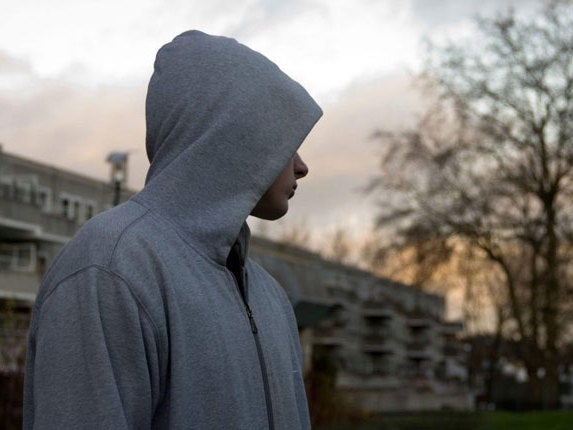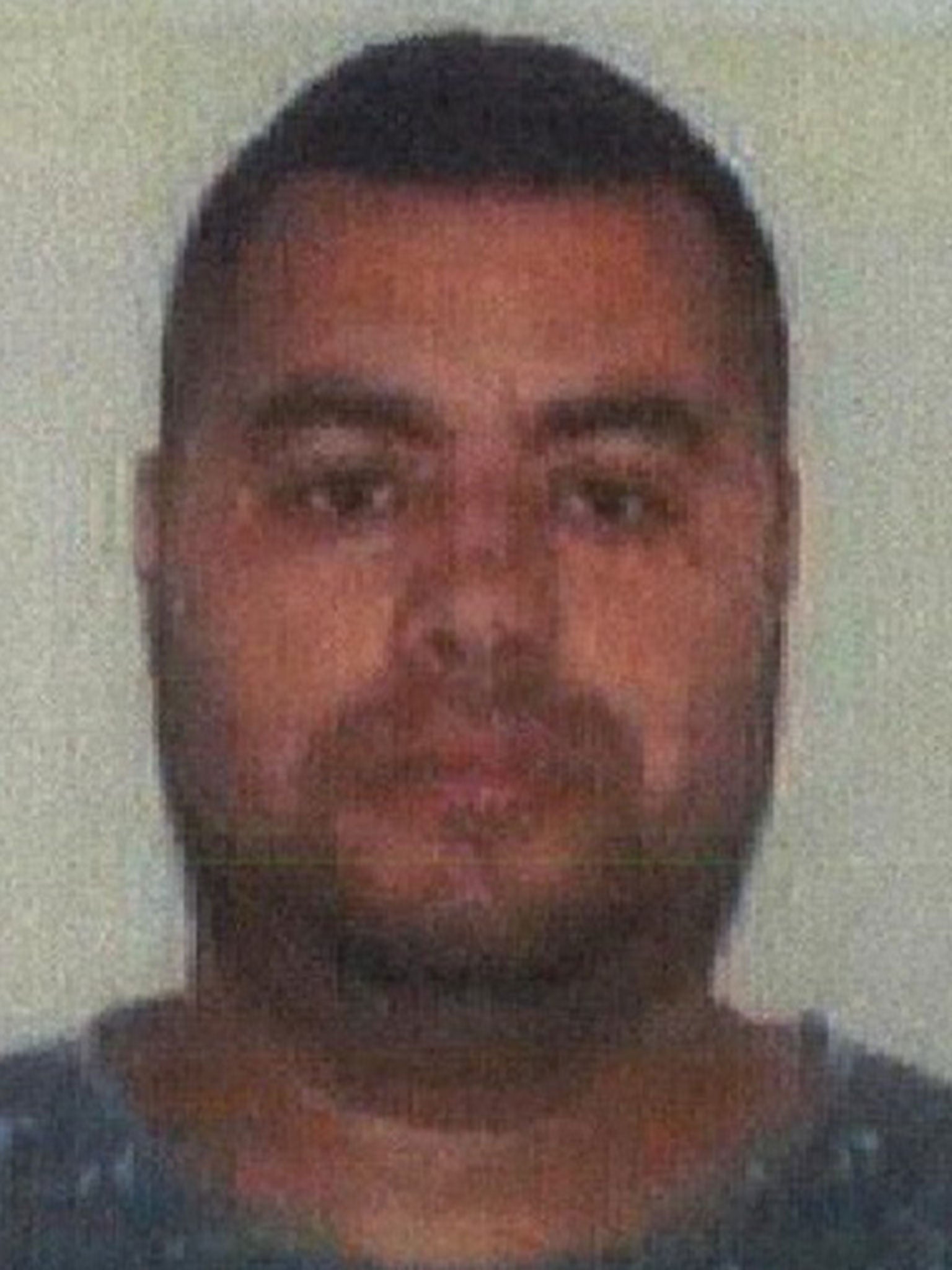British children being forced into modern slavery in UK as 5,000 potential victims found
Teenagers being forced to traffic drugs and into sexual exploitation across UK, investigators warn

British children are being forced into modern slavery in the UK as more potential victims are reported than ever before.
A total of 5,145 potential victims were referred into the system last year, an increase of 35 per cent on the year before, and the National Crime Agency (NCA) believes the number will continue to rise.
The largest group was British citizens (819, more than double the 326 referred in 2016), followed by Albanian and Vietnamese nationals.
The NCA said a rising number of British modern slaves are being reported because of police referring teenage victims exploited by criminal gangs.
Most are being used for sex or as drug mules by “county lines” groups that supply from urban centres into rural areas, often exploiting young and vulnerable people to distribute their product.
Suspected labour exploitation was the most frequently cited category, accounting for 2,352 cases - nearly half of all referrals.
Other reports were linked to suspected sexual exploitation (1,744) and domestic servitude (488).
The majority, 4,714, of referrals were passed to English police forces for crime recording purposes, with 207 referred in Scotland, 193 in Wales and 31 in Northern Ireland.
Of the referrals logged last year, 1,595, or nearly a third, related to exploitation alleged to have happened overseas.
Liam Vernon, a senior manager in the NCA’s modern slavery and human trafficking unit, said the figure was “shocking”.
“The reality is that there isn’t a region in the UK that isn’t affected,” he told The Independent.
“The number is shocking and our assessment is that this is an under-reported crime.”
Investigators put the huge increase down to a better understanding of exploitation by police and other authorities, who have been flagging more people to the dedicated National Referral Mechanism (NRM).
The body works to identify victims of human trafficking or modern slavery and ensure they receive support to escape their situation.
Gangs frequently use children under the age of 18 in the belief they will be less suspicious and receive lenient sentences if caught.
Some of the children found in the trade also have mental health issues and are drug users themselves, coming from broken homes, traumatic lives, state care or having been reported missing, the NCA said.
Several police forces have discovered care homes being “actively targeted” to recruit vulnerable children, while sexual grooming was also found in some areas seeing girls being coerced into “relationships” with gang members.
Will Kerr, director of the NCA, said the rising phenomenon was a “particular concern”.
“We are now dealing with an evolving threat,” he added. “The criminals involved in these types of exploitation are going into online spaces, particularly adult services website, to enable their criminality.”
Other common countries of origin include China, Nigeria, Romania, Sudan, Eritrea, India, Poland and Pakistan, but 116 different nationalities are known to be affected.
The majority of modern slaves identified are subject to forced labour, sexual exploitation or domestic servitude.
Victims have been found in a range of legal and illegal trades in the UK, including Vietnamese nail bars, cannabis farming, prostitution, flower-picking and at hand car washes.
Some people-smuggling gangs are directly involved in modern slavery, with hotspots lying on migration routes from West Africa and through the Mediterranean.
“At some point on every migrant’s journey they will become more and more vulnerable to practices like debt bondage, sexual exploitation and labour exploitation,” Mr Vernon said.
The Independent has interviewed men who were made to carry out forced labour in Libya in order to pay for their freedom or onward journey, by militias who transport women to be raped for cash.
Some gangs are taking advantage of vulnerability, while others are targeting victims by posing as recruiters for legitimate work in Britain and then forcing them into slavery when they arrive.
Romania is a nexus for such recruitment, as is Nigeria, with both countries involved in recent court cases.
A Romanian gang leader was jailed for seven years on Friday after forcing his victims to work in construction and threatening to beat them to death if they asked to be paid.
David Lupu, 29, lured targets from his home country with a promise of a £50 a day and a good standard of living, but kept them in squalid conditions and confiscated their documents.
He told the men, who were given limited food, that they would have to pay hundreds of pounds for permits to work in the UK, so they remained under his control until two victims managed to reach a London police station.
Detective Constable Marie Marshall said: “The victims in this case were promised work and a future in London. The reality was very different and they were exploited by the Lupu, who arranged work with no intention of payment, saddling the victims in debt.”

The NCA was involved in another case in Spain, which saw 39 women and girls who had been forced into prostitution by a Nigerian gang freed and 89 suspects arrested last week.
They had undergone voodoo rituals before leaving their home country to make them comply with their masters’ orders on the refugee route to Europe via Libya and the Mediterranean Sea.
After arriving in Spain, the victims were forced to live in cave-like houses and made to work as prostitutes for the profit of gang leaders remaining in Nigeria.
The number of modern slaves globally is unknown but in the UK a government estimate in 2014 put the figure at between 10,000 and 13,000 people.
“Our judgement is that is an under-estimate and in the next three years we expect the number to rise,” Mr Vernon said.
“This is a profitable area for crime groups and we see technology and the internet developing as an enabler, making it easier for criminals to operate and harder for law enforcement to tackle on our own.
“It is important to have strong international cooperation and the public have a really strong role to play.”
Victoria Atkins, the minister for crime, safeguarding and vulnerability, described modern slavery and trafficking as “despicable crimes which see some of the most vulnerable people in society targeted by ruthless predators”.
She said the Modern Slavery Act 2015 was helping security services pursue offenders and “bring the issue out of the shadows”, with 600 live police investigations underway, adding: “We know there is more to do, and we are working to improve the system for identifying victims and supporting them to leave situations of exploitation and begin to recover and rebuild their lives.”
Anyone who wants information or to report a case of modern slavery is asked to call the dedicated helpline on 0800 0121 700 or visit the website.
Additional reporting by PA
